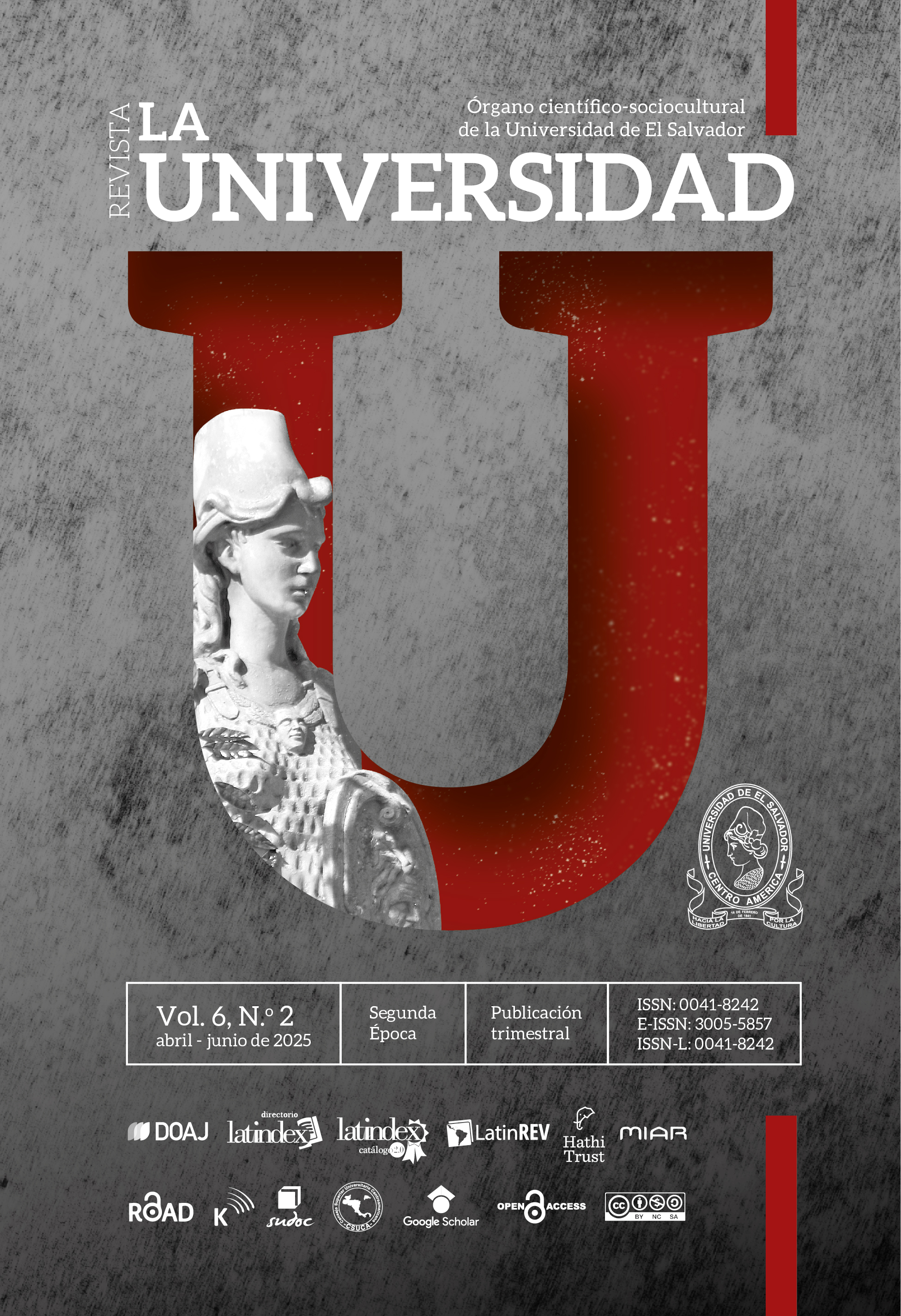A look at classroom management, to promote at Self-regulation of learning in secondary and university education
Keywords:
higher education, earning, secondary education, self-regulation, teachingAbstract
When the scope of academic success in secondary and higher education is contemplated, the personality and habits of the students are influenced, but at the same time, the example, the educational practice, the specialization of knowledge and the bond between teacher-student. Therefore, this research aimed to design classroom management routes to enhance self-regulation of learning in Colombian educational institutions. We worked under the qualitative approach, correlational scope and case study design. The sample consisted of 174 students distributed in secondary, technical and higher education, and 8 active teachers. The data were collected through the semi-structured interview, the observation record, the documentary record and the focus group. The information analysis was carried out through triangulation using an Excel matrix. The results define that classroom management can directly influence the development of self-regulation of learning, allowing students to acquire the tools and support necessary to manage resources such as time, set goals, self-evaluation, autonomy and critical thinking. It is concluded that teacher effectiveness can also contribute significantly to the development of self-regulation, when they promote activities that challenge students to make decisions, reflect on their progress and adapt their study strategies. It is concluded that good classroom management by the teacher contributes to students facing academic challenges at higher levels of educational evaluation
Downloads
References
Álvarez, J. de J., Quinayas, M. B., Salazar, Y. y Fernández, T. G. (2024). Impacto de los fenómenos sociales en la autorregulación del aprendizaje en instituciones educativas de Colombia. Mikarimin. Revista Científica Multidisciplinaria, 10(1), 64–80. https://doi.org/10.61154/mrcm.v10i1.3293
Conejo, F., Sánchez, J. S. y Mahecha, J. (2020). Una mirada praxeológica a la autorregulación del aprendizaje. Revista Cubana de Educación Superior, 39(3), 1-18. http://scielo.sld.cu/pdf/rces/v39n3/0257-4314-rces-39-03-e14.pdf
Darling-Hammond, L. (2012). Desarrollo de un enfoque sistémico para evaluar la docencia y fomentar una enseñanza eficaz. Pensamiento Educativo, 49(2). https://doi.org/10.7764/PEL.49.2.2012.1
De Hoyos, R. E., Estrada, R. y Vargas, M. (2018). Predicting Individual Wellbeing Through Test Scores: Evidence from a National Assessment in Mexico. Working paper N° 2018/09. http://scioteca.caf.com/handle/123456789/1187
Fernández, T. G., Pinzón, M. I., Leal, D. M. y Delgado, P. C. (2025). Pedagogical Mediations Through the Literature and the Arts for the Bullying Prevention. A Literature Review. Revista Guillermo De Ockham, 23(1), 225–245. https://doi.org/10.21500/22563202.7006
Fernández, A. A. (2020). Regulación y autorregulación de los aprendizajes: Una propuesta didáctica en básica secundaria. Sophia, 16(2), 219-232. https://doi.org/10.18634/sophiaj.16v.2i.972
Fernández-Martín, F., Arco-Tirado, J. y Hervás-Torres, M. (2022). Impacto de un programa de tutoría entre iguales para mejorar la autorregulación del aprendizaje. Anales de Psicología, 38(1), 110–118. https://doi.org/10.6018/analesps.483211
Fuentes, S., Rosário, P., Valdés, M., Delgado, A. y Rodríguez, C. (2023). Autorregulación del aprendizaje: Desafío para el aprendizaje universitario autónomo. Revista Latinoamericana de Educación Inclusiva, 17(1), 21-39. http://dx.doi.org/10.4067/s0718-73782023000100021
García, A. M., Carvajal, C. E., Palacios, C. M., Asprilla, E. y Fernández, T. G. (2024). Factores que inciden en la práctica educativa a partir de la autorregulación del aprendizaje en estudios entre 2013-2023. Revista Internacional De Pedagogía E Innovación Educativa, 4(1), 177-192. https://doi.org/10.51660/ripie.v4i1.147
Hernández, A. y Camargo, Á. (2017). Autorregulación del aprendizaje en la educación superior en Iberoamérica: una revisión sistemática. Revista Latinoamericana de Psicología, 49(2), 146-160. https://doi.org/10.1016/j.rlp.2017.01.001
Jiménez, M. A. (2019). Programar al revés. El diseño curricular desde los aprendizajes. Narcea.
Mora-Benavides, E. J., Mur-Bichury, Y. E. y Fernández-Guayana, T. G. (2024). Formar en la autorregulación del aprendizaje para una vida social sana. Revista Electrónica En Educación Y Pedagogía, 8(14), 190-200. https://doi.org/10.15658/rev.electron.educ.pedagog24.02081411
Pinzón, M. I., Valero Olay, C., Miranda, J., Becerra, M. y Fernández, T. G. (2024). Prácticas educativas que favorecen la formación en autorregulación del aprendizaje de los estudiantes en Colombia. ACADEMO Revista De Investigación En Ciencias Sociales Y Humanidades, 11(3), 310–322. https://doi.org/10.30545/academo.2024.set-dic.10
Ponce, R. y Luján, E. (2013). Docencia y práctica educativa. La estilística en la educación. Boreal Libros.
Rivas, N. M., Sánchez, A. M., Orjuela, M., Salamanca, S. P. y Fernández, T. G. (2025). La autorregulación del aprendizaje a través del entorno social desde tres experiencias vividas. Revista Infancia, Educación y Aprendizaje, 10(2), 14–22. https://doi.org/10.22370/ieya.2024.10.2.3954
Ronqui, V., Trias, D., Huertas, J. A. y Bardelli, N. (2023). Desarrollo profesional docente para la autorregulación del y su enseñanza. [Ponencia]. XV Congreso Internacional de Investigación y Práctica Profesional en Psicología, Buenos Aires, Argentina. https://www.aacademica.org/000-009/803
Salas, E. A. y Gallardo, K. E. (2022). Evolución de la conceptualización de la autorregulación en Orientación Educativa: una revisión sistemática de literatura. REOP - Revista Española de Orientación y Psicopedagogía, 33(2), 23–44. https://doi.org/10.5944/reop.vol.33.num.2.2022.34358
Uruñuela, P. (2019). La gestión del aula. Narcea.
Valencia-Serrano, M. (2020). Diseño de tareas para promover aprendizaje autorregulado en la universidad. Educación Y Educadores, 23(2), 267–290. https://doi.org/10.5294/edu.2020.23.2.6
Voss, T., Dubberke, M. y Baumert, J. (2011). Assessing Teacher Candidates’ General Pedagogical/Psychological Knowledge: Test Construction and Validation. Journal of Educational Psychology, 103(4), 952–969. https://doi.org/10.1037/a0025125
Downloads
Published
Issue
Section
License
Copyright (c) 2025 Authors who publish in Revista La Universidad agree to the following terms: Authors continue as owners of their works, non-exclusively assigning dissemination rights to La Universidad Journal under the standards of the Attribution-NonCommercial-ShareAlike License: CC BY-NC-SA 4.0. This license allows the use of a work to create another work or content, modifying or not the original work, as long as the author is cited, the resulting work is shared under the same type of license and has no commercial purposes(https://creativecommons.org/licenses/by-nc-sa/4.0/deed.es).

This work is licensed under a Creative Commons Attribution-NonCommercial-ShareAlike 4.0 International License.





